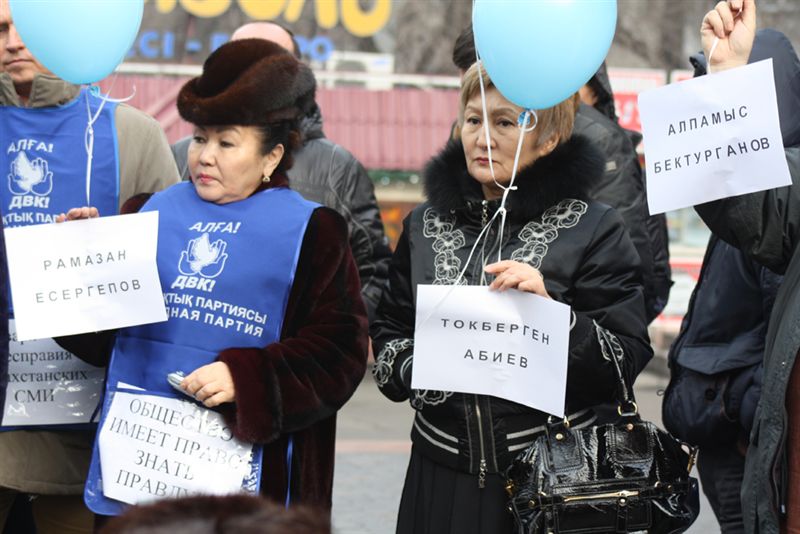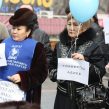
Kyrgyz Regime Suspected in Journalist’s Death
Publication: Eurasia Daily Monitor Volume: 7 Issue: 5
By:

On December 16 Gennady Pavluk, a prominent journalist in Kyrgyzstan, was forcefully pushed from a sixth floor window in Almaty with his limbs taped. Pavluk was delivered to a local hospital in a critical condition and died within a few days. Several Kazakh media outlets ran reports alleging Kyrgyz security forces’ involvement in Pavluk’s death (www.akipress.kg, December 30). In response to these allegations the Kyrgyz government accused the Kazakh media of spreading disinformation.
To date, Kazakhstan, currently chairing the Organization for Security and Cooperation in Europe (OSCE), has taken a rather passive role over investigating Pavluk’s death. Kazakh authorities captured and extradited the alleged assassins to Kyrgyzstan. But Astana has made no official address to the Kyrgyz government to conduct any further thorough investigation of the crime.
Shortly before his death, Pavluk was planning to launch an online newspaper together with the opposition leader Omurbek Tekebayev. With a strong background in political journalism in many leading newspapers, Pavluk sought to take a further step and develop a strong opposition media outlet that would disseminate information against the regime.
Kyrgyzstan’s most popular online forum published email exchanges between Pavluk and Tekebayev that took place before the journalist’s trip to Almaty. From Pavluk messages, it was evident that the journalist believed in Tekebayev’s potential to unite people in Kyrgyzstan and mount a strong challenge to President Kurmanbek Bakiyev, who he accused of corruption and authoritarianism (www.diesel.elcat.kg, January 2).
“A successful media project could become an accumulator and instrument for attracting new partners, and a socio-political ‘shield’ abroad”, wrote Pavluk. He argued that Kyrgyzstan is experiencing severe shortages of credible media outlets, virtually no analytical material is published, and most outlets experience government pressure. Pavluk hoped that influential political forces in Kyrgyzstan and Russia would support the voices of Tekebayev’s opposition party Ata-Meken.
Since Bakiyev came to power approximately five years ago, dozens of political leaders and journalists have been beaten and killed. Last year alone marked several brutal beatings of journalists and the killing of political officials. In March 2009, Bakiyev’s former aide Medet Sadyrkulov died in an accident that was allegedly orchestrated by his opponents. According to one Kyrgyz political observer, “Pavluk’s fulfilled a twofold goal –to show Tekebayev and other opposition leaders to keep their distance from politics and to scare journalists.” The spike in political killings followed the appointment of Zhanysh Bakiyev as the head of the National Security Guard in 2008.
As Edil Baisalov, a Kyrgyz political activist currently in exile, told Jamestown, “there is no doubt whatsoever in Bishkek as to who is behind Pavlyuk’s execution, we believe the brother of the president masterminded the crime.” Baisalov openly accuses Zhanysh of “operating a squadron of death” by masterminding the violent removal of the opponents of the regime.
The Kyrgyz political leader, currently forced in exile in the United States, Bakyt Beshimov has actively questioned Bakiyev’s leadership style: “Who was convicted in the case of Sadyrkulov’s “accident”? And, who killed parliamentarian Kadyraliev as well as why? Who stabbed the outspoken journalist Abdyldaev 28 times? Such questions remain unanswered. Meanwhile, generous state awards have been given left and right to law enforcement officials who were supposed to take care of the crime rate in the country” (www.turkishweekly.net, November 29).
Most civil society and political leaders in Kyrgyzstan have little doubt that Bakiyev, his family members and the security forces are behind the violent acts. “The culture of impunity that the regime has created in Kyrgyzstan led them to believe they can get away from any crime,” Baisalov told Jamestown. The activist argues that it is Kazakhstan’s responsibility to initiate an investigation of Pavluk’s death that will otherwise be ignored by the Kyrgyz government. “Kazakhstan should prove its regional leadership by not condoning this sort of practices of its neighbors, and take clear action by vigorously persecuting those responsible for the outrageous murder on its soil,” argues Baisalov.
Yet, in practice little has been done by the current OSCE chairman, apart from alleging the participation of the Kyrgyz security forces in Pavluk’s killing and attempting to mobilize local civil society. Bakiyev’s press secretary issued a statement calling local NGO’s and the mass media to fight for the security of journalists (www.24.kg, December 26, 2009). The government’s address, however, sounded awkward, given that many in Bishkek have already made up their minds about the alleged killers of journalists in the past years.




